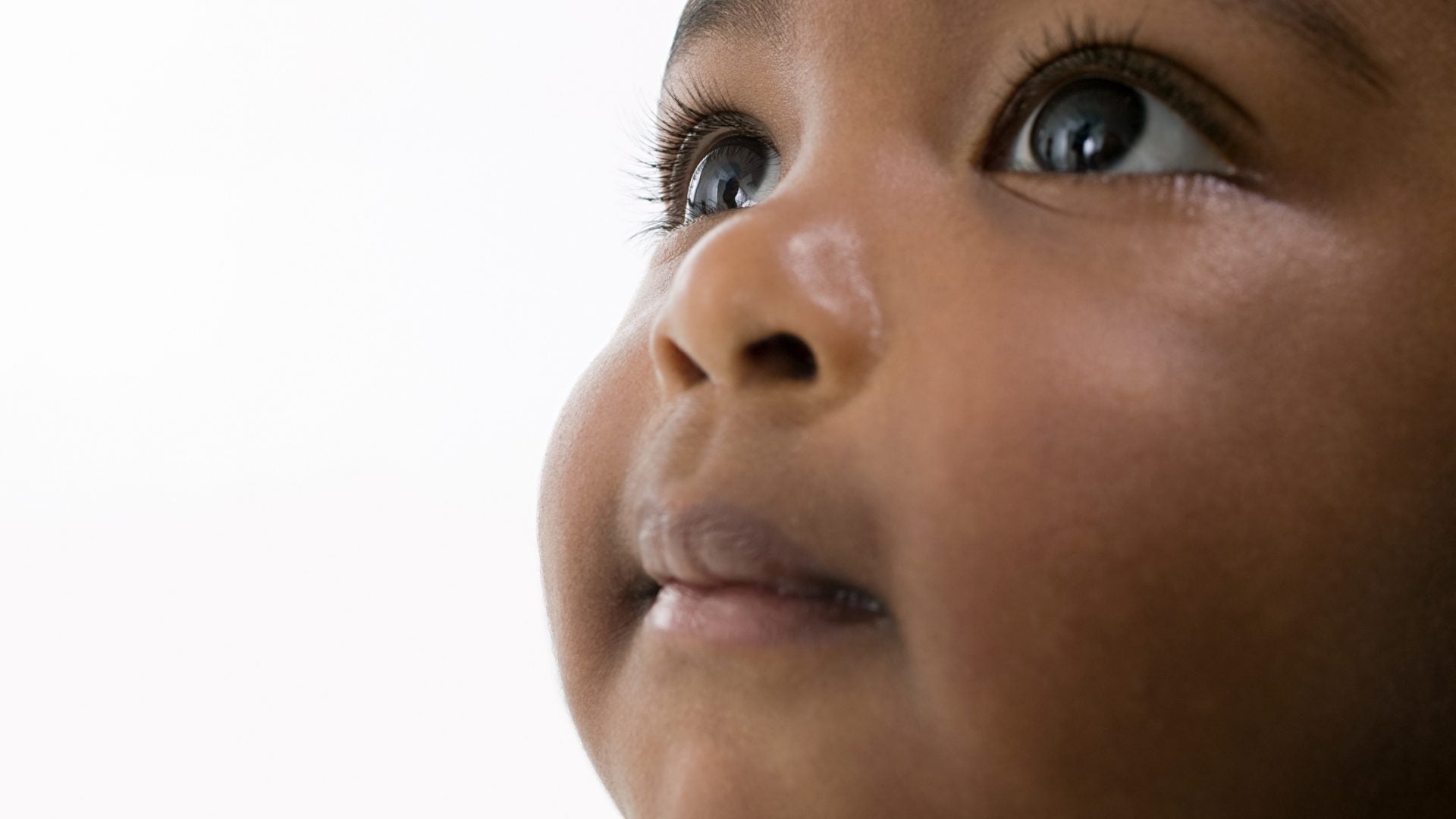
It’s not an understatement to say that since COVID-19 was declared a pandemic in March 2020, the public health crisis vastly changed the way we look at and go about parenting. Things especially shifted for those who gave birth during the pandemic.
Raising children who’ve only seen people in masks, haven’t interacted with other kids and relatives, and play alongside parents working from home all day is all some families know. Things could change soon, though. As vaccinations increase and coronavirus cases decrease (though there have been increases in some parts of the country), conversations about a return to the office and possibilities for life after the pandemic have started. What does that mean for the children who’ve only known quarantine life? How does a parent go about socializing a child whose contact with others has been minimal from birth?
“I know that’s a valid concern, but really babies and even with toddlers, most of their socialization and their social and emotional and moral development occurs with their parents and their caregivers,” says parenting coach and psychologist Dr. Ann-Louise Lockhart, owner of A New Day Pediatric Psychology. She’s taking part in the Tommee Tippee brand’s Spill the Milk parenting series on Wednesday, April 22 to talk about burnout and the socialization of children during the pandemic. “It’s not really necessary for them to have interactions with other babies and other toddlers their age to have a healthy development. It’s pretty normal for a lot of their socialization to occur with their parents, primary caregivers, even extended family.”
According to Dr. Lockhart, babies learn a lot of what they need to know about mixing with others from the body language, tone of voice, and interactions had with their family members. They learn what to do and what not to do based on those moments. If you play with them, read to them, do artwork, and sensory play with them, you don’t have to worry that your child is going to be behind.
“I would really say to not be concerned about your baby being a social recluse because they can’t go to daycare or because they can’t be around other babies and toddlers,” she says. “I think that it’s not as big of an issue as sometimes we’re making it out to be.”
But it makes sense that when a child who has been sheltered during this time gets around other babies, and unknown visitors in general, they may be slow to warm up to them. It’s actually a good and common thing for development, specifically around seven to nine months of age, because the child is looking and learning to protect themselves. When the time comes for them to be around friends and family they didn’t get to engage with before, the key is for parents to take the lead.
“If you’re in a room full of new people or with a new grandparent that they haven’t seen and their grandparent’s moving towards them and they look to you and you’re smiling nodding and have a reassuring voice, then you’re communicating to them that it’s okay,” she says. “They may be okay or they may not be, but really that connection with primary caregivers is really what’s most important because they kind of gauge what to do next. ‘I trust daddy or I trust mommy or I trust grandma. So it’s okay for me to move forward. I’m good.'”
In regards to having to cut the cord once jobs begin to call for their employees to return to offices, she says moms should get an early start on getting used to spending less time with their babies. Leave your kids with loved ones for an hour or two here and there, making slow and steady adjustments to build up to things.
“When you go back to work, maybe don’t just go back the first day eight hours. Maybe go back for a couple of hours, then a half day, then a full day,” she says. “That smooth transition for both your baby and for you I think is the best way to kind of transition because it’s going to be hard overall. But at least it doesn’t have to be trial by fire when you just jumped in with both feet and hope it’s okay.”
As the official green light to go about life somewhat “normal” is a ways off, moms are still trying to live and adjust in the now. Mommy guilt over the struggle to balance everything has always been a real thing, but it’s especially hard-hitting during these times for new and seasoned mothers. Dr. Lockhart says it’s important not to follow social media accounts or watch programs that leave us comparing our parenthood to others and to also watch the way we speak to ourselves in order to cope.
“I think that we have to use a lot of self-scripts so the ways that we talk to ourselves are uplifting and encouraging and filled with more self-compassion,” she says. “So if we yell at our toddler, for example, and then think, ‘I’m such a terrible mom.’ No, I’m not a terrible mom. I feel spent, I feel overwhelmed. I didn’t mean to yell, just like they didn’t mean to have a tantrum.'”
She also encourages parents to create schedules, which children actually thrive with.
“We need to have structure because if our kids just wake up whenever they want, eat whenever they want, and go to sleep whenever they want, what’s going to happen is that we will have very dysregulated and unbalanced kids,” she says. “That’s what I’ve been seeing a lot, is kids who are overly stimulated from too much screen time, or overly exhausted because they’re not getting enough rest or enough playtime outside, or they’re not balancing screen with non-screen time. We have to have some level of structure and parameters because otherwise, everybody is going to be frazzled.”
In addition to that, Dr. Lockhart says don’t be afraid to speak up and say you need help. If you have people who you trust who are available to check in with your child via Zoom or even come in and give you a break while you work from home, she recommends finding those people in your community who can be of support. It’s also not unreasonable, for example, to see if you’re able to negotiate with your employer to be able to have a flexible work schedule for the benefit of your kids and your mental health.







And when it comes to mental health for moms, self-care needs to be a priority. Lockhart says it’s important to get back to the things you love and value that light a fire in you and provide a renewed sense of energy. Find time for yourself, even if it’s just to get away for an hour, to go for a walk, maybe to eat in the park. And also, find ways to connect with people so you have somebody you can relate to and vent to.
“A lot of people have stopped doing the things they love, and they’re just kind of going through the motions. One of the big things that causes burnout is monotony; and that monotony and the sameness, the same environment, the same four walls, the same people in your house, all of that is exhausting,” she says. “We want to make sure we take care of ourselves because if we’re spent, then we’re not going to be any good to our kids.”
These practices will aid moms as they push through pandemic parenting, and prepare for life after it.






